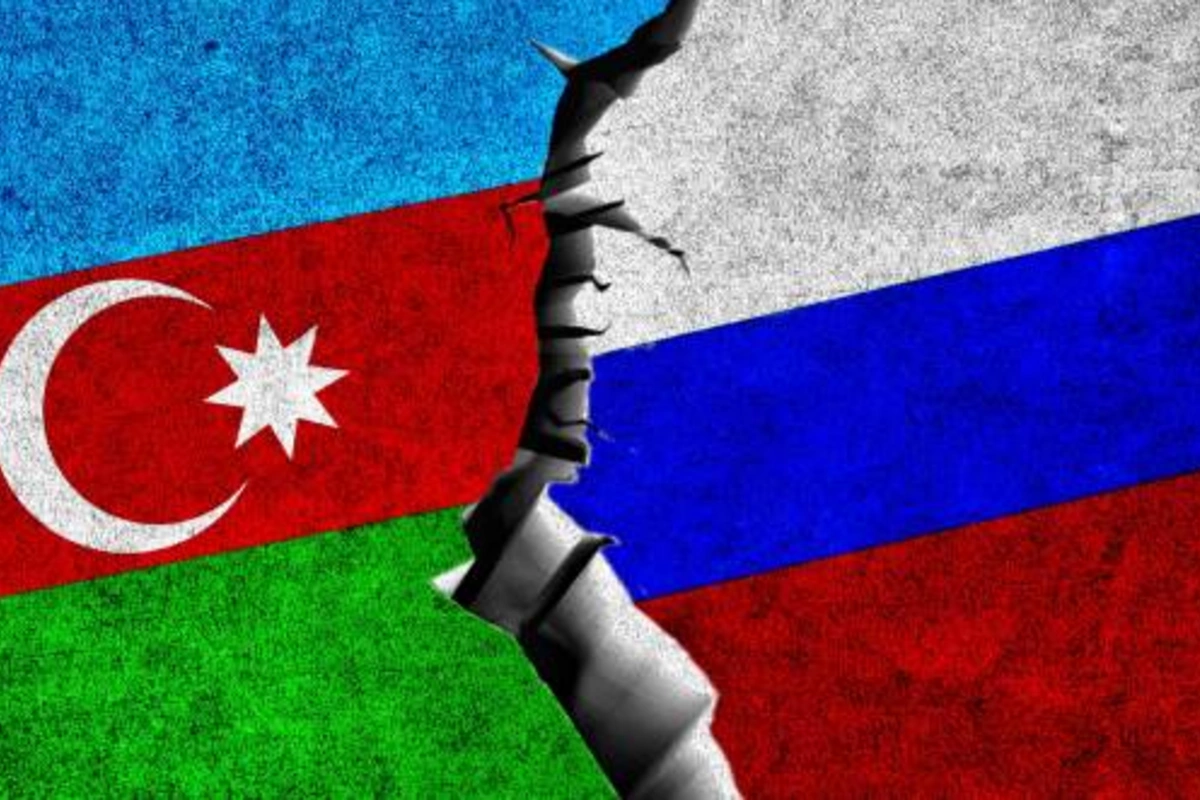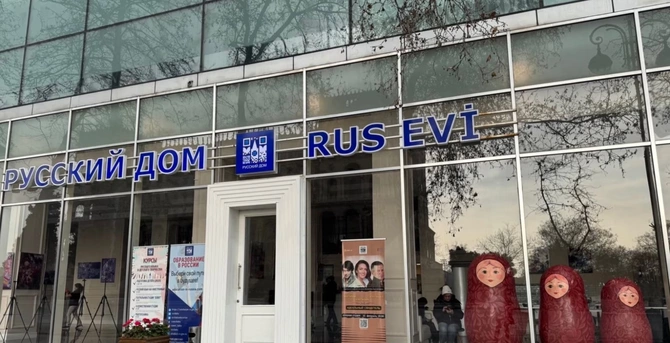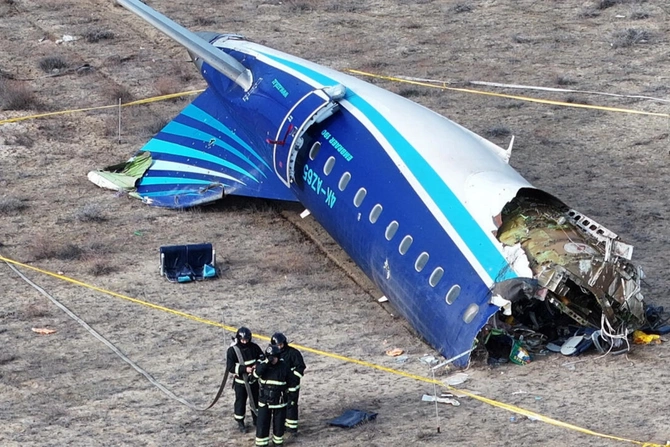
Creator: Ruma Aktar | Credit: Getty Images
By Tural Heybatov
Relations between Baku and Moscow continue to deteriorate, descending into a state of crisis. The only way to halt this downward spiral lies in the hands of the Russian side-acknowledging its responsibility for the tragic events that have unfolded. Such an admission would serve to defuse tensions. However, despite the overwhelming evidence pointing to the responsible party, Moscow persistently remains silent, issuing only occasional statements of regret regarding certain actions taken by Baku. This approach, rather than alleviating the situation, only serves to escalate it further.
The issue extends beyond the undeniable evidence implicating Russia. It is also evident that Baku possesses far more information than what has been made publicly available. There are undoubtedly specific reasons why Azerbaijan has chosen to adopt such a firm and uncompromising stance.
It has recently been revealed that Azerbaijan has formally notified Moscow of its decision to terminate the operations of Rossotrudnichestvo within the country, accusing the organization of engaging in espionage and financing questionable projects. The "Russian House," located in one of the most prestigious areas of the Azerbaijani capital-directly opposite the seaside boulevard-has already been closed. The official reason cited for this closure is the absence of proper registration. Moscow, however, asserts that bureaucratic obstacles prevented the institution's registration and has expressed its readiness to legalize the "Russian House" immediately. Nonetheless, the registration issue remains shrouded in ambiguity. According to observers, Azerbaijan deliberately delayed the registration process due to intelligence suggesting the facility’s links to Russian security services, yet it could not outright refuse Moscow’s request. While the specifics remain unclear, this scenario appears highly plausible.
Kremlin spokesperson Dmitry Peskov has expressed regret over the expulsion of Rossotrudnichestvo, stating during a press briefing that Moscow intends to continue discussions on the matter.
Regardless of Moscow’s position, on February 3, an official diplomatic note was submitted to the Russian side. Azerbaijan’s Foreign Ministry spokesperson, Aykhan Hajizadeh, confirmed that following Azerbaijan’s decision to cease the operations of the "Russian House," corresponding actions from Russia were anticipated.]

Observers are correct in asserting that Azerbaijan-Russia relations are currently at their most fragile point in history. Since the collapse of the Soviet Union, there has been no precedent for such a dramatic downturn in bilateral ties. The expulsion of Rossotrudnichestvo is widely interpreted as an unprecedented diplomatic rebuke from Baku to Moscow. The escalation of tensions was further compounded by a decision of the Baku Court of Appeal to overturn the pre-trial detention order for former judge Elena Khakhaleva, who is wanted in Russia on fraud charges. Under normal circumstances, it is unlikely that Khakhaleva would have been granted release.
Adding to this, Azerbaijan has recently provided humanitarian aid to Ukraine in a highly publicized manner-explicitly emphasizing the donation’s value of one million dollars. While Azerbaijan has supported Kyiv since the onset of the conflict, such aid had previously not been widely advertised. Now, however, images of aid convoys are dominating news cycles, underscoring a shift in Baku’s approach.
Perhaps the most consequential development is Azerbaijan’s announcement that it is preparing to file a lawsuit against Russia in an international court over the crash of an AZAL aircraft. This decision, officials say, was made after Moscow failed to issue a sincere apology. Even after the preliminary findings of the investigative commission were made public, Russia has continued to portray itself as unjustly accused, attempting to shift responsibility onto the AZAL pilots. This stance has provoked significant discontent in Azerbaijan. A red line has been crossed, and at this stage, even if the Russian leadership were to make a public statement, admit guilt, and formally apologize to the Azerbaijani people, it is unclear whether relations could be salvaged.

Photo: AFP
Baku had initially held out hope that Moscow would reassess its stance and respond appropriately to the situation. It is crucial to note that no one accused Russia of deliberately attacking the aircraft. No allegations were made against Russian ground services for intentionally misguiding the flight. A tragic accident belongs to an entirely different category, and had Moscow conducted itself with transparency and integrity-fully cooperating in the pursuit of the truth-many concerns could have been mitigated. However, Russian representatives have approached the investigation not with the goal of uncovering the truth but rather with the intent to minimize Russia’s liability. It is precisely for this reason that Baku rejected an investigation under the Commonwealth of Independent States (CIS) Interstate Aviation Committee. Moscow failed to persuade Azerbaijan that an inquiry conducted under the CIS framework-effectively under Russian oversight-would be conducted fairly and objectively. Concerns were raised that crucial evidence, such as flight recorders, could be compromised.
Discussions regarding allegations that Russian electronic warfare systems disrupted the Azerbaijani president’s aircraft on December 25 while en route to St. Petersburg will not be pursued further here, as this remains an exceptionally delicate matter. However, the mere fact that such claims have emerged speaks volumes. Notably, this is not the only speculation circulating in public discourse. Some have suggested that Russia orchestrated the AZAL plane crash as a means of coercing Azerbaijan into reopening its land borders. The alleged motive? To facilitate the movement of radical groups from the North Caucasus into Azerbaijani territory. While such theories remain highly speculative and lack substantive evidence, their very existence highlights the current climate of suspicion and tension.
Can the relationship be restored? This question is being widely asked today. A severing of ties would deal a significant blow to individuals on both sides of the border, to well-established economic interests, to Azerbaijan’s large Russian-speaking community, and to the nearly one-million-strong Azerbaijani diaspora in Russia. Already, the deterioration of relations is visibly eroding these connections, which is detrimental to both nations. While some may believe that severing ties with Russia is a straightforward decision, the reality is far more complex. Such a move would inevitably carry consequences for Azerbaijan as well.
What, then, can be done to halt this decline? The question must be directed at Moscow, which continues to maintain a rigid silence. The only voice emanating from Russia is its propaganda machine. And, as experience has shown, Russian propaganda does not exercise restraint, often resorting to aggressive rhetoric and inflammatory directives. The Russian leadership must recognize the gravity of the situation and take decisive steps to de-escalate tensions before irreparable damage is done.
Share on social media